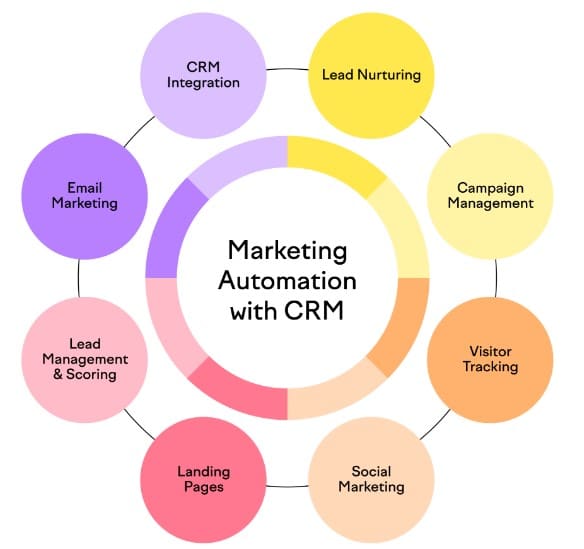Why CRM is Critical for Marketing Automation
Introduction
Why CRM is Critical for Marketing Automation – Marketing automation has become an essential tool for businesses to streamline their marketing efforts and maximize efficiency. However, without proper integration with Customer Relationship Management (CRM) software, the full potential of marketing automation cannot be realized. In this article, we will explore why CRM is critical for marketing automation and how it can help businesses achieve their marketing goals.
Understanding CRM and Marketing Automation
Before diving into the importance of CRM in marketing automation, it’s essential to understand what each of these tools entails.
Customer Relationship Management (CRM)
CRM software is designed to help businesses manage their interactions with customers, automate sales processes, and improve customer retention. The software collects and stores customer data, including contact information, purchase history, and communication history, to provide businesses with a complete view of their customers.
Marketing Automation
Marketing automation, on the other hand, is the use of software to automate repetitive marketing tasks such as email marketing, social media posting, lead generation, and lead nurturing. The goal of marketing automation is to streamline marketing processes and increase efficiency, allowing businesses to focus on more strategic initiatives.
Importance of CRM in Marketing Automation
Now that we have a basic understanding of CRM and marketing automation let’s explore why CRM is critical for marketing automation.
1. Centralized Customer Data
CRM software provides a centralized location for businesses to store customer data. This data includes contact information, purchase history, communication history, and more. With this data, businesses can create more targeted and personalized marketing campaigns that are tailored to the specific needs of each customer.
2. Better Segmentation
With CRM data, businesses can segment their customers based on various criteria, such as demographics, purchase history, and communication history. This allows businesses to create targeted marketing campaigns that are tailored to each customer segment, resulting in higher engagement rates and more conversions.
3. Improved Lead Scoring
Lead scoring is the process of assigning a value to each lead based on their behavior, demographics, and other factors. By integrating CRM data with marketing automation, businesses can improve their lead scoring process, ensuring that they prioritize their efforts on the leads that are most likely to convert.
4. Enhanced Lead Nurturing
CRM data can also help businesses improve their lead nurturing efforts. By tracking a lead’s behavior and preferences, businesses can create targeted and personalized communication that is more likely to resonate with the lead, resulting in higher engagement rates and more conversions.
5. Streamlined Sales Processes
By integrating CRM data with marketing automation, businesses can streamline their sales processes. This includes automating lead qualification, lead distribution, and lead follow-up, resulting in a more efficient and effective sales process.
Conclusion
CRM software is critical for marketing automation, as it provides businesses with centralized customer data, better segmentation, improved lead scoring, enhanced lead nurturing, and streamlined sales processes. By integrating CRM data with marketing automation, businesses can create more targeted and personalized marketing campaigns that are tailored to the specific needs of each customer, resulting in higher engagement rates and more conversions.
FAQs
Q1. What is the difference between CRM and marketing automation?
A1. CRM software is designed to help businesses manage their interactions with customers, while marketing automation is the use of software to automate repetitive marketing tasks such as email marketing, social media posting, lead generation, and lead nurturing.
Q2. Can marketing automation be effective without CRM?
A2. While marketing automation can be effective without CRM, the full potential of marketing automation cannot be realized without proper integration with CRM software.
Q3. What are the benefits of using CRM in marketing automation?
A3. The benefits of using CRM in marketing automation include centralized customer data, better segmentation, improved lead scoring, enhanced lead nurturing, and streamlined sales processes.
Q4. What types of businesses can benefit from using CRM in marketing automation?
A4. Any business that wants to streamline their marketing efforts and improve customer engagement and conversions can benefit from using CRM in marketing automation. This includes businesses of all sizes and across all industries.
Q5. How can businesses integrate CRM with marketing automation?
A5. Businesses can integrate CRM with marketing automation by using software tools that allow for seamless data transfer between the two systems. Many CRM and marketing automation software providers offer built-in integrations, or businesses can use third-party integrations to connect the two systems.
